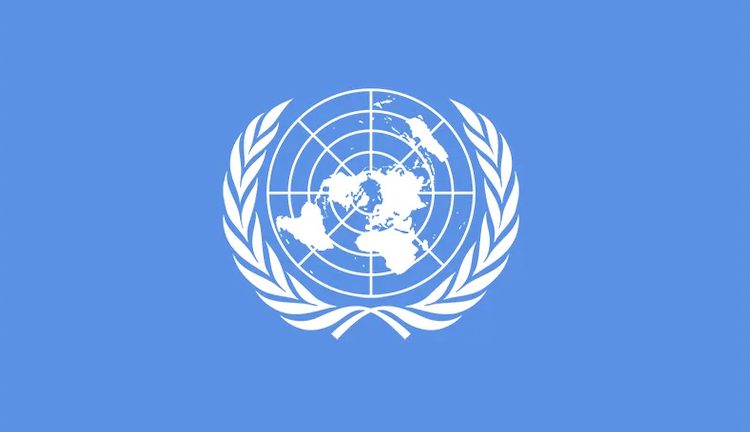By Arul Louis*
UNITED NATIONS. 16 September 2023 (IDN) — A popular myth about the UN is that it is the world government and could unilaterally act to stop wars or punish all nations launching wars—and end the universe’s ill with a fiat.
Yet again, Russia’s invasion of Ukraine has spectacularly blasted the myth like the drones raining bombs.
This unrealistic expectation gives rise to cynicism about the organization that rose from the ashes of World War II with the shimmering goal of ending wars and genocide.
It has failed in both.
And it is struggling with the goals of fighting poverty and global warming and dozens of others that it has since adopted.
The Security Council, which alone has enforcement powers, has been check-mated by the polarization from the veto-powers of the five permanent members.
Seventy-seventh session General Assembly President Csaba Korosi put it succinctly: “The Security Council —the main guarantor of international peace and security—has remained blocked, unable to fully carry out its mandate”.
And the General Assembly of 193 members is powerless.
The UN is burdened by the original sin of its founding when it reflected the post-World War II geopolitics, vesting indisputable powers over the Council with the five nations that emerged victorious.
The focus at the G20 summit on 9-10 September turned to two specialized UN agencies formed with the same post-war template: the International Monetary Fund (IMF) and the World Bank Group (WB) which are equally showing signs of losing their relevance.
These two institutions have been found to be unprepared for the 21st century with a changed world map, especially at a time when many countries around the world are trapped in a financial crisis.
Prime Minister Narendra Modi told the G20 finance ministers earlier this year, “Trust in international financial institutions has eroded. This is partly because they have been slow to reform themselves”.
“We need to collectively work to strengthen multilateral development banks for meeting global challenges like climate change and high debt levels”, he said.
Reform of IMF and World Bank
Given the urgency, President Biden made reforming them also his agenda at the G20, as his National Security Adviser had indicated, creating a congruence of India’s and US positions.
“That’s one of our main focuses heading into the G20: delivering on an agenda fundamentally reshaping and scaling up the multilateral development banks, especially the World Bank”, he said.
The reform of the two institutions gets a further sense of urgency because of China’s lending programs around the world becoming a rival center of financing with initially looser terms, even though those entrap debtors into giving up strategic assets.
Given the limitations on ushering in world peace, the UN has focused on climate, humanitarian and development issues—which it also views as essential to countering threats to global peace—again with varied success.
Right now, climate change is the Armageddon that humanity faces in the view of Secretary-General António Guterres who gives the “existential threat” the top priority.
Another priority for the UN is the set of 17 ambitious Development Goals (SDGs) that run the gamut from poverty and hunger eradication to “reasonable consumption” and peace and justice.
The world is failing on both and Guterres warned that the “climate collapse” has begun and that “the blow inflicted on development is all around with growing hunger and displacement”
One of the contributing factors is the polarization of another kind, the rich-poor divide: the inadequacy of funding for development by the rich countries as well as their reluctance to make up for their historic and current greenhouse gas profligacy.
As for dealing with wars, Article VII does give some vague powers to the Security Council to launch “operations by air, sea or land forces of members” to “maintain or restore international peace and security”.
But such direct and hostile military operations are impossible with a polarized Council, especially when a veto-wielding permanent member is the invader.
The only time the Council attempted a direct military action was in 1950 when the Soviet Union boycotted the Council against Taiwan occupying the China seat on the Council.
The US and its allies launched a military operation under what they said was the UN flag against the Chinese and North Korean troops trying to over-run the Korean Peninsula.
“United Nations Command“
Although it continues to call itself “United Nations Command”, it is a United States-led operation completely unrelated to the UN based in South Korea on the perilous border with the North, a defiant international outlaw under the protection of a veto-wielder, China.
The UN runs peacekeeping operations—for which India has been the biggest contributor of troops sending more than 250,000 personnel since 1948—giving a misleading image of the world’s power.
But these operations can only function, as the saying goes, when there is peace to keep, because they cannot go in guns blazing in the cause of righteousness and that limits their deployment.
When they are deployed, they too face growing attacks from terrorists and partisans, with limitations on prevention and retaliation.
Last year, 32 peacekeepers, including two from India, were killed in action.
Most peacekeeping operations have been successful to varying degrees. However, there has been a spectacular failure in Haiti where it is trying to outsource the role of ending anarchy there to Kenya.
For all the UN’s failings and shortcomings, there is no other universal organization now as there wasn’t 60 years ago, when US President John Kennedy said, “If there wasn’t a United Nations, we would certainly have to invent one”.
It may be derided as a talking shop, but even “meeting jaw to jaw is better than war”, as Winston Churchill is reported to have said—or to continue to jaw-jaw even in the middle of a war. [IDN-InDepthNews]
*Arul Louis is a New York-based non-resident senior fellow of the Society for Policy Studies.
Image credit: Britannica
IDN is the flagship agency of the Non-profit International Press Syndicate.


